The best horror, sci-fi, fantasy, and superhero TV on HBO Max
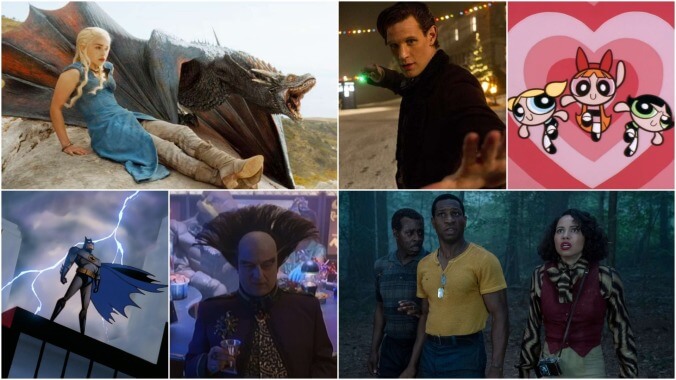
Streaming libraries expand and contract. Algorithms are imperfect. Those damn thumbnail images are always changing. But you know what you can always rely on? The expert opinions and knowledgeable commentary of The A.V. Club. That’s why we’re scouring both the menus of the most popular services and our own archives to bring you these guides to the best viewing options, broken down by streamer, medium, and genre. Want to know why we’re so keen on a particular show? Follow the links in each slide to coverage from The A.V. Club’s past. And be sure to check back often, because we’ll be adding more recommendations as shows come and go.
The WarnerMedia streaming multiverse is no more, at least as far as DC Universe is concerned: With that service’s relaunch as the comics-focused DC Universe Infinite, its library of TV and films has migrated to HBO Max, adding Batman: The Animated Series, Harley Quinn, and other superhero series to a selection of genre programming that already included modern-day Doctor Who and Game Of Thrones. But fans of science fiction and fantasy shouldn’t overlook what Cartoon Network brings to this particular table, either, thanks to classics like The Powerpuff Girls and Dexter’s Laboratory and newer favorites like Adventure Time and Steven Universe.
In the mood for something more dramatic? Or comedic? We’ve got you covered there, too: Check out or guides to the best TV dramas and best TV comedies on HBO Max.
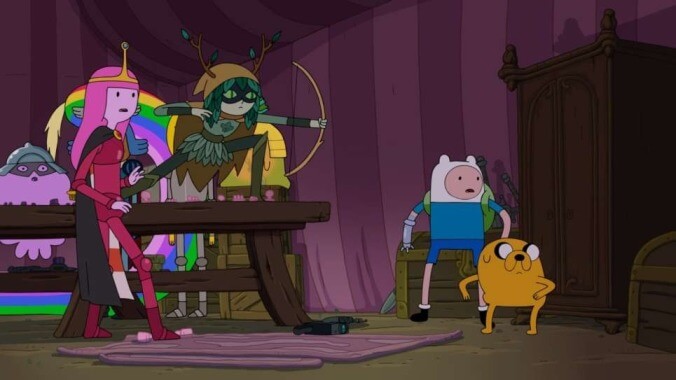
The past decade has been a golden age for children’s animated television, and Adventure Time led the charge. Starting life as a cute but seemingly inessential fantasy about a candy kingdom, a bubblegum princess, a boy named Finn and his malleable talking-dog best friend, Jake, the series quickly expanded its scope without ever losing its sense of wonder and playfulness. Exploring the pains of adolescence, building a mythology without ever seeming to strain for it, experimenting with different formats, finding depth and tragedy in a villain as goofy as the Ice King—nothing was out of bounds. At once complex and instantly accessible, Adventure Time remains a high-water mark for storytelling ambition. []
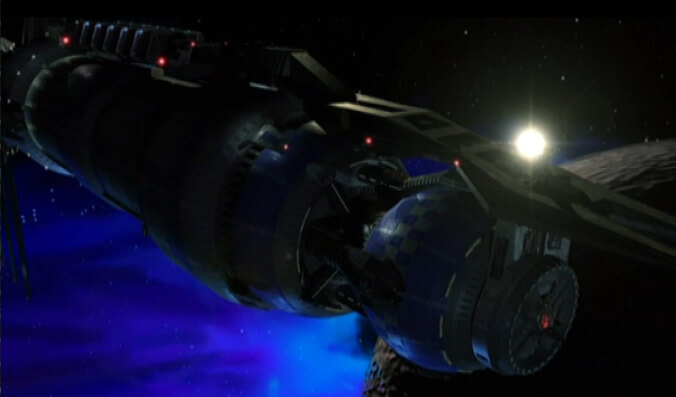
The ’90s were a fertile time for speculative fiction on television, and the genre’s experiments in serialization and other narrative techniques presaged the “Golden Age” of drama in the ’00s. Some of these series are well known for their contributions to the form, like , which survived disappointment in its ongoing storyline to be recognized as one of the best and most influential shows of the era. There’s also Buffy The Vampire Slayer, which has seen its reputation improve from cult hit to essential part of the canon. Still others—Hercules, Xena, Sliders, SeaQuest—are largely forgotten.Then there’s , a show that deserves wider recognition, even though it’s entirely understandable why few know it as well as Buffy or X-Files.Creator J. Michael Straczynski wrote the bulk of Babylon 5, a science-fiction epic set onboard a space station, and came up with a five-year plan that the series largely stuck to. In addition, the show pioneered the use of computer-generated special effects. But Babylon 5 starts slowly, alienating would-be viewers. Its dialogue and acting lack subtlety (grating for those used to irony-drenched post-Whedon dialogue), and the shoestring budget leads to sometimes distracting low-production values.Yet debating Babylon 5’s importance and how, why, and when it was weak detracts from its most significant legacy: Babylon 5 was often fantastic television during its mid-series peak, and it could still hit high points during its weaker seasons. Part of the reason those middle seasons seemed so revelatory is because they’re simply more competent than what had come before. Virtually every important speculative fiction show of the era arrived partially formed, often struggling through hit-or-miss early seasons—like those of , Buffy, and even The X-Files—and Babylon 5 was no different in that regard. There’s a steady increase in technical competence, including from the actors, throughout the series, reaching its peak in those middle years. []
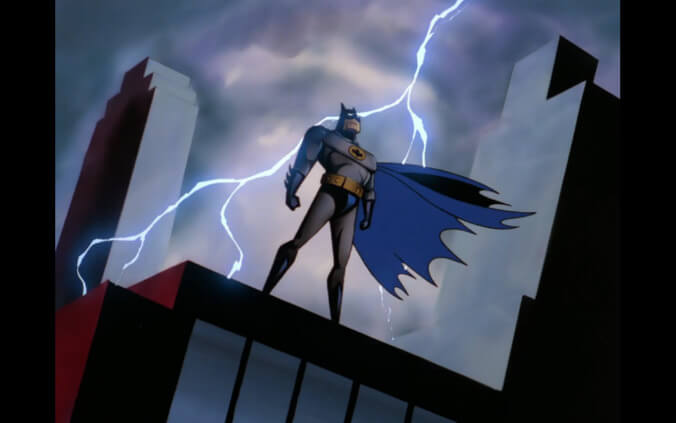
There is no better and more consistent portrayal of Batman in the ’90s, in or out of comics, than the first three DVD collections of (which aired as both Batman: The Animated Series and The Adventures Of Batman & Robin, in keeping with the frustrating, complex history of DCAU shows jumping networks and changing titles). These were the episodes that set the tone for future series, deepened the character of Bruce Wayne, updated Robin in ways that would spill over into the comics, and had the most profound effect on viewers, creating the audience for future spin-offs.These seasons featured an effective mix of original stories and adaptations of classic Batman stories from the comics, and in addition to [Paul] Dini’s excellent work, also boasted scripts by comics pros like Marty Pasko, Marv Wolfman, Gerry Conway, Elliot Maggin, Len Wein, Mike W. Barr, and Denny O’Neil. The DVDs contain some of the series’ best episodes: “Nothing To Fear,” “P.O.V.,” “Two-Face,” “Heart Of Ice (which won an Emmy for the show), “The Laughing Fish,” “Robin’s Reckoning,” and “A Bullet For Bullock” are all fine examples of the show’s appeal. They also set the standard for the DCAU’s characteristically high-quality voice acting: In addition to Kevin Conroy’s consistently fine work in the title role, Bob Hastings’ Jim Gordon, Paul Williams’ Penguin, Ron Perlman’s Clayface, and, of course, Mark Hamill’s famed turn as the Joker are all excellent. []
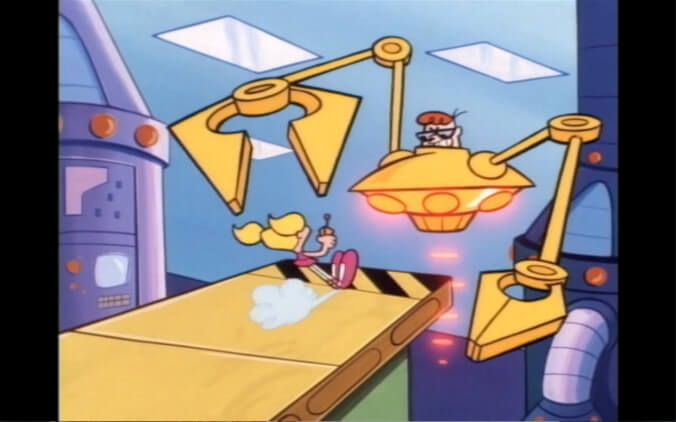
The first series from Samurai Jack creator Genndy Tartakovsky, Dexter’s Laboratory, established the animator as capable of creating shows targeted equally at children and their parents. Dexter’s Laboratory works on several levels, at once a relatively straightforward comedy about a boy genius and his irritating sister and a commentary on the tropes it was engaged with. (The best parodies usually are.) Dexter’s affectation and machinations and Dee Dee’s oblivious meddling call to mind classic animated pairings (especially Wile E. Coyote and Road Runner). Dexter’s side characters subverted other clearly established genres, like the superhero Justice Friends, who spent more time arguing about classic roommate issues than they spent fighting crime. []
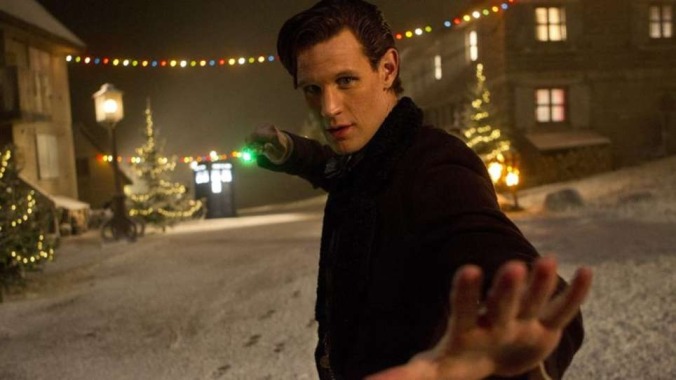
Under the eye of a new showrunner (series veteran Steven Moffat), Doctor Who in the 2010s abandoned much of the focus on character and interpersonal relationships that defined it during the Russell T. Davies era. Instead, the sci-fi series directed its attention toward expanding the Who universe with new baddies, increasingly labyrinthine plots, and season-long mysteries. The change largely worked in Who’s favor—the 2010s are littered with some of the best standalone episodes in the show’s history. []
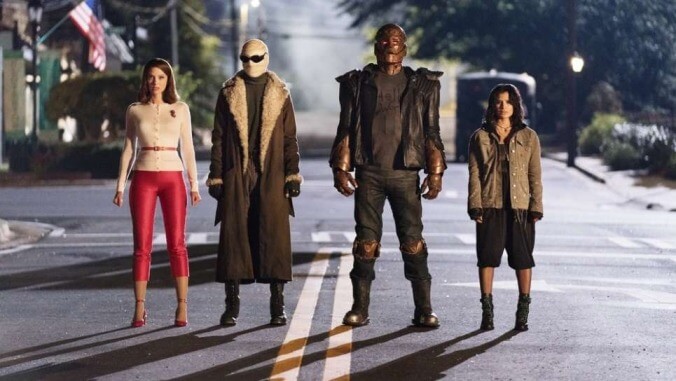
“More TV superheroes, just what the world needs. Have you hung yourself yet?” the unseen narrator (Alan Tudyk) sneers in the opening seconds of this unabashedly nihilistic and meta blend of superhero dramatics and absurdist comedy. Like a combination of AMC’s equally gonzo Preacher and the fourth-wall-breaking snark of Deadpool, the series delights in taking the air out of puffed-up comic book conventions even as it simultaneously delivers them. There are multiple moments in the first episode alone that threaten to sink the show into mean-spirited bile, only to instantly pivot into goofball antics that rescue it from succumbing to the nastiness hovering around the edges.Thank nearly 60 years of comics lore for the mashup of tones. Originally launched as a superhero title in the early ’60s, Doom Patrol has been rebooted multiple times over the ensuing decades, though it reached its creative apex with Grant Morrison’s run, and his influence is keenly felt in this adaptation of the material. The setup is simple, even if the show’s running color commentary by the narrator (quickly revealed to be a villain called Mr. Nobody, also Tudyk) deconstructs it as it progresses: Following a car crash that shatters his body, race-car driver Cliff Steele wakes up in the palatial manor of Dr. Niles Caulder (a.k.a. The Chief, played by Timothy Dalton), who has transplanted Cliff’s brain into a stilted metallic body, leaving the world to think the hotshot speedster has died. Cliff’s fellow outcasts at the residence include the wholly bandaged Larry Trainor (Matthew Zuk’s body, but Matt Bomer in flashbacks and voice), a former test pilot who has a separate being of pure energy living in his body; Rita Farr, a Hollywood starlet from the ’50s who hid from the world after an unknown substance transformed her flesh into a sagging, mutated mass that can expand or contract; and Crazy Jane (Diane Guerrero), a woman with 64 personalities, each with their own power. []
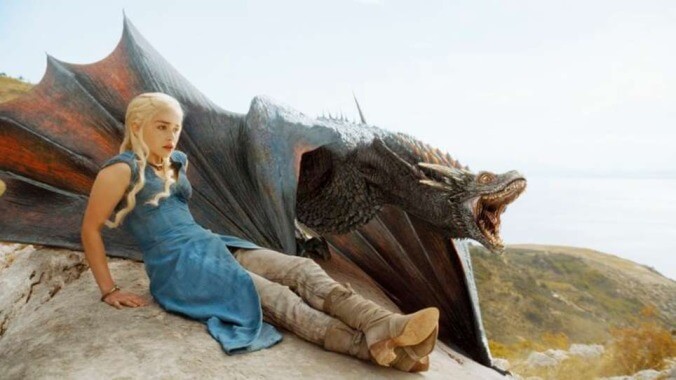
Game Of Thrones defined the last decade of television, for better or worse. HBO’s adaptation of George R.R. Martin’s fantasy epic A Song Of Ice And Fire blew open television production values and turned once-niche books into the most Emmy-awarded series of all time and the decade’s true “smash hit.” But while the show’s most iconic scenes and memorable characters will forever remain in the cultural zeitgeist, its final seasons struggled to resolve Martin’s unfinished story cleanly, held accountable by the same social media conversation that had built the show into a phenomenon. At its fiery peaks, few shows in the decade burned brighter, but the icy reception to its finale reflects its struggles to measure up in a decade with so many of TV history’s finest endings. []
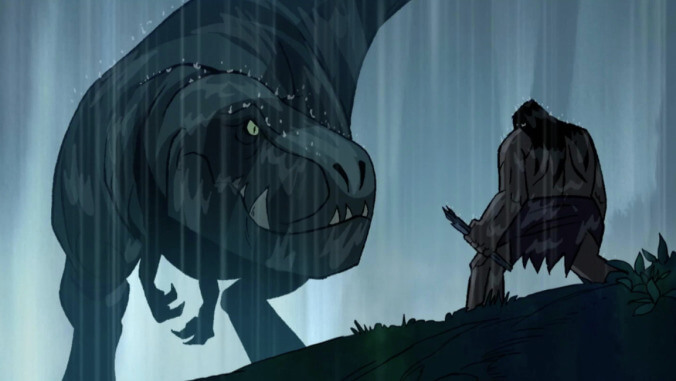
Set before the dawn of language, the new Adult Swim series makes clear that the passions that have always driven the most critically affecting of [Genndy] Tartokovsky’s work—violence, melancholy, slapstick, and the pure, kinetic energy of bodies in motion—are still firmly in control of his directorial instincts, sideline in the world of monster cruise ships be damned. As seen through the eyes of hominid protagonist Spear—occasionally resembling a Pleistocene Brock Samson, ripping and tearing his way through an anachronistic menagerie of prehistoric mega-fauna—Tartakovsky’s vision of the ancient era is a brutal, bloody, violent place, one more than happy to make an impromptu meal of the weak. Unmoored from his home by a sudden tragedy, Spear teams up with a friendly carnivorous dinosaur and wanders the countryside, inevitably getting into gorgeous and extended battles with all sorts of giant, hungry monsters. []
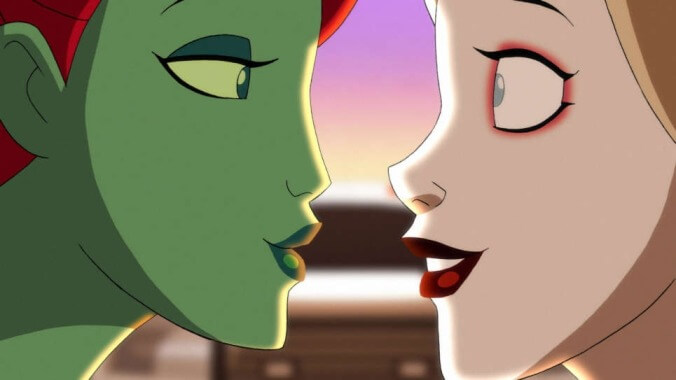
What was obvious from the moment Harley Quinn premiered was that the DC Universe-turned-HBO-Max series, which follows the off-kilter Miss Harleen Frances Quinzel (Kaley Cuoco, successfully shedding any residual Big Bang gloss), was the most graphic offering in the Batman-related animated oeuvre. Season one focused solely on Harley’s revenge against Joker (Alan Tudyk) and established the former sidekick as a supervillain in her own right. 2020’s season two picked up with Harley living her dream—Joker, the Justice League, the Legion Of Doom, and Gotham as a whole destroyed. “This is what I’ve always wanted,” a content Harley tells pal Poison Ivy (Lake Bell), “anarchy and sushi.” But even as Harley rested on her laurels without a Big Bad, Harley Quinn did not. Instead, the series examined the surprising reverberations of a Gotham power vacuum and entered into an impressively nuanced exploration of the Harley-Ivy relationship. Instead of playing up a potential Ivy-Harley romance for headlines just to have Ivy go through with her wedding to Kite Man (Matt Oberg), Harley Quinn allowed for heart to shine through its mile-a-minute joking and lightyear-a-minute cursing. [Patrick Gomez]
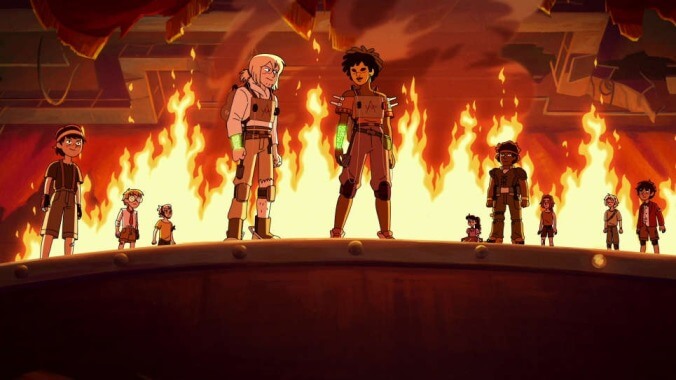
With a protagonist and a creator—Regular Show alum Owen Dennis—who both spent their youths designing amateur computer games, Infinity Train has plenty of elements kids might recognize from their favorite digital pastimes. Set on an endless train where each car is a world unto itself, every episode of the series is essentially a new level, full of puzzles for smart, headstrong teenage hero Tulip (Ashley Johnson) to think (or feel) her way through. She even gets a score of sorts, in the form of a mysterious number on her hand that seems to change as her personal growth expands and contracts. It’s an un-subtle metaphor, but one that Infinity Train handles with decidedly subtle grace. Nowhere is that clearer than in “The Cat’s Car,” the central point of the show’s first season. Tricked into reliving memories of her parents’ recent divorce by the titular feline (voiced with purring glee by the always wonderful Kate Mulgrew), Tulip is forced to confront the fact that some of her recollections of that time aren’t as happy as she might want them to be—but also not as awful as she’d feared. Tellingly, this epiphany does not resolve all of Tulip’s problems instantly; instead, it realistically takes several more episodes of surreal characters—corgi kings, cheerful robots, weirdo turtle people—for her experiences on the train to start helping her grow and heal. []
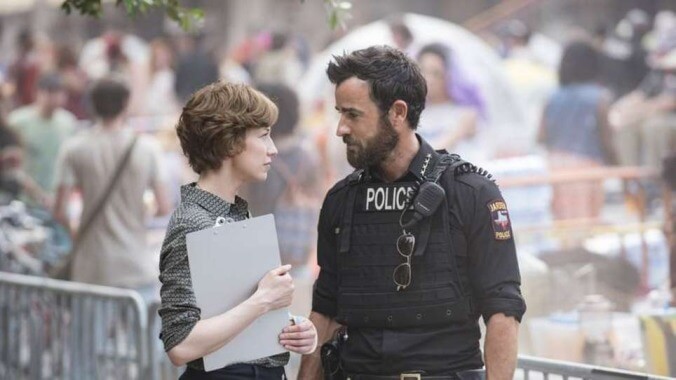
Never before has a searing drama about the emotional toll exacted by personal trauma on a global scale been so damn funny. Honest, idiosyncratic, and soulful, the weird and wonderful world of The Leftovers imagines the fallout from 2% of the world’s population disappearing without a trace—and the disparate ways those remaining try to make some sense of such a capricious and inexplicable universe. The first season faithfully adapted Tom Perrotta’s novel of the same name, but once it left its source material behind, the series became a marvel of erudite storytelling: As meditative and moving as a funeral, as gripping as a thriller, and funnier than most comedies. A TV series that successfully comes to grips with the divine? God, what a show. []
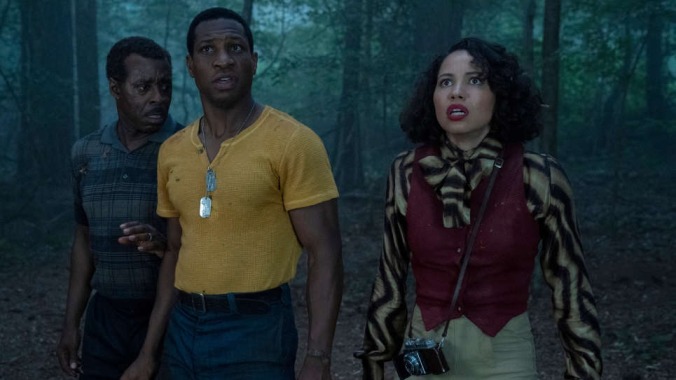
When asked to describe HBO’s Lovecraft Country during their Comic-Con@Home panel, cast members Jurnee Smollett and Courtney B. Vance described the highly anticipated drama as a story about family, and how the atrocities and sentiments of Jim Crow America are still present today. Adapted from Matt Ruff’s highly regarded 2016 horror novel, the 10-episode series centers on Atticus Freeman (Jonathan Majors) who teams up with his friend Leticia (Smollett) and his uncle George (Vance) to search for his missing father, Montrose (Michael Kenneth Williams). The group enters a region teeming with both cultural horrors and monsters seemingly ripped from an H.P. Lovecraft tale. Executive producers Misha Green (who developed the series) and Jordan Peele cemented their status as paragons of creative Black expression with Underground and Get Out, respectively. A sci-fi wonder in the hands of such an ideal team-up should prove to be a resonant event. []
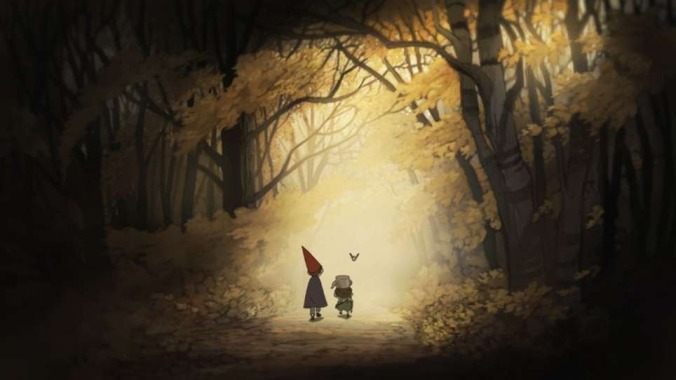
This charming animated series delivered a perfect autumnal fairy tale awash in warm, harvest tones and an impressive gallery of voice actors, from John Cleese to Tim Curry to Elijah Wood. Over The Garden Wall explores the mysteries of mortality in the most heartwarming way imaginable, as brothers Wirt (Wood) and Greg (Collin Dean) encounter a series of peculiar woodland creatures who help them discover when it’s time to let go of this mortal coil—and when it’s time to hang on. []
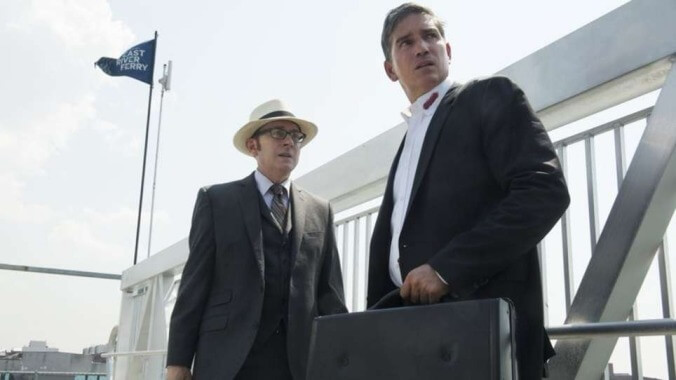
A CBS procedural that resolutely refused to stick to procedure, Person Of Interest combined digital-age paranoia with top-notch lead performances, all in service of a sci-fi story far more ambitious than its initial “wounded men help people” premise might lead viewers to believe. The Machine may not have been able to see its own truncated final season coming, but it still served up some fantastic hours of high-concept action TV. []
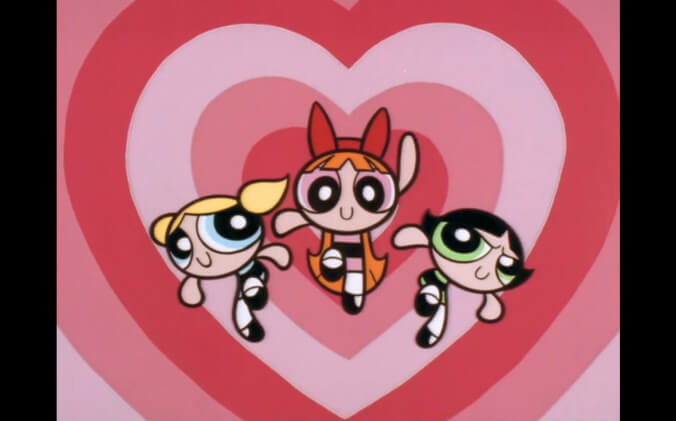
When creator Craig McCracken created his first animated short of the superpowered triplets that would become the Powerpuff Girls, they had the more forceful sobriquet of the Whoopass Girls. Originally, it was an open can of whoopass that accidentally fell into the mixture Professor Utonium was brewing in hopes of creating the perfect little girls. That name didn’t survive the cartoon’s transition to series, but fortunately, the spirit of McCracken’s original demo did. It’s a show about three little superheroes who seriously whoop ass.Which is, in part, what makes The Powerpuff Girls the perfect experience for introducing your kids to superheroes. It’s upbeat and kinetic; the kind of show that you could first discover in your 20s and retroactively create a life-long relationship with, which makes it ideal to watch alongside your own little science experiments. Watching the three little girls, Blossom, Buttercup, and Bubbles, beat the tar/stuffing/feathers out of building-sized monsters is sufficiently awesome, but the show doesn’t neglect the fact the girls are also kindergarteners. They worry about making friends and don’t want to get ready for bed or take baths. This gentle realism, not too heavy or overwrought, provides a bit of sweetness to the bombast. []
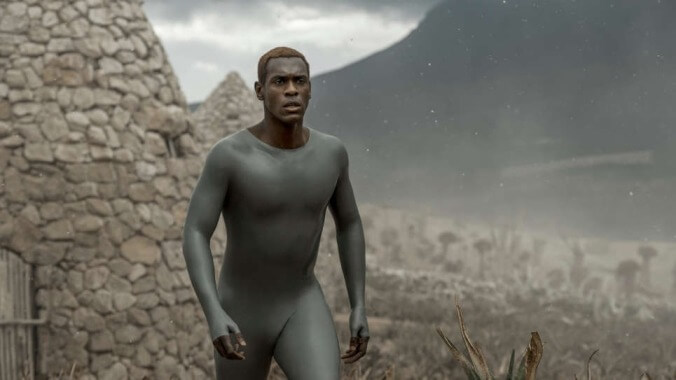
If you’re going to do visually ambitious sci-fi, get Ridley Scott. The director returns to helm his first episodes of a TV series since he got his start in the industry back in the 1960s (and his first for American TV); if the trailer is anything to go by, the world he’s created (Scott directed the first two installments) for Raised By Wolves is striking, indeed. Creator and showrunner Aaron Guzikowski (who previously led the uneven but intriguing Sundance series The Red Road) follows a pair of androids attempting to raise humans on a mysterious planet. Along with the obvious philosophical questions posed by such a premise, there looks to be plenty of signature Scott action and horror—besides alien creatures, it seems some other beings are interested in taking these kids. Unfortunately, we won’t know who the good guys and the bad guys really are until we get a look at this 10-part season, but it seems safe to say that, regardless of its eventual quality, Raised By Wolves delivers on the spectacle. []
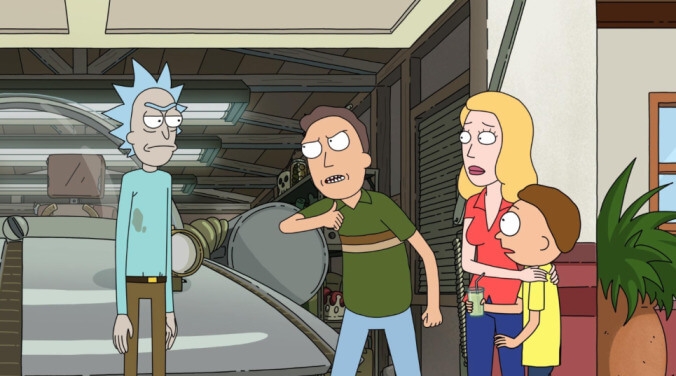
Springboarding from a deliberately lowbrow comic concept (what if Back To The Future, but gross and mean), Justin Roiland and Dan Harmon’s animated universe quickly expanded to encompass the deepest reaches of scatological hilarity, existential dread, and Grant Morrison-worthy sci-fi weirdness. Roiland voices both Rick Sanchez (the universes smartest—and thus most contemptuous—mad scientist), and Morty (Rick’s painfully ordinary 14-year-old grandson/sidekick), while Community creator Harmon’s infamously Rick-like genius helps cantankerously steer the duo’s cosmic adventures in mind-bending rings around both sitcom convention and sci-fi cliché. Roping his extended family into schemes involving multiple realities, multiple Ricks, and yawning, nihilistic despair, Rick is both Roiland and Harmon’s celebration and deconstruction of the loneliness of ultimate genius, while still finding room for the occasional genocidal musical fart. []
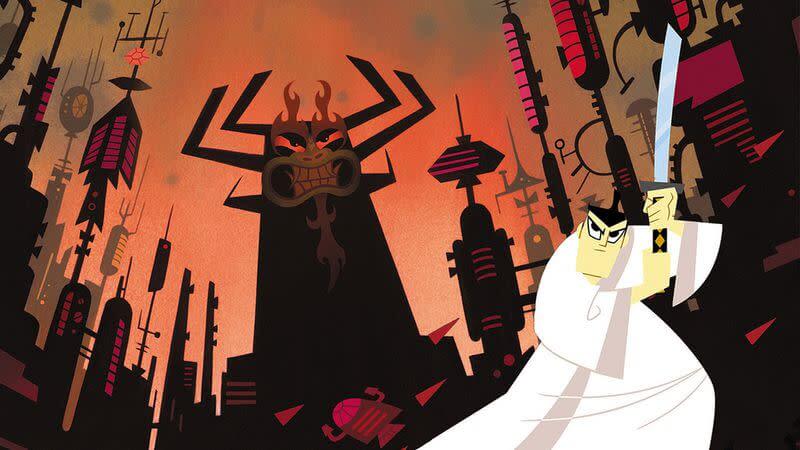
The setup of Samurai Jack could not be more simple. There’s a good guy (Jack, voiced by Phil LaMarr) fighting a bad guy (Aku, voiced by Mako). There’s some magic, and some crazy dystopian technology, but it’s mostly just one man’s quest to fulfill his destiny and save the world. Aku puts it best in his opening narration: “Long ago in a distant land, I, Aku, the shape-shifting Master Of Darkness, unleashed an unspeakable evil! But a foolish samurai warrior wielding a magic sword stepped forth to oppose me. Before the final blow was struck, I tore open a portal in time and flung him into the future, where my evil is law! Now the fool seeks to return to the past, and undo the future that is Aku!” But giving the villain control of the opening sequence only begins to suggest the ways in which Samurai Jack is special. []
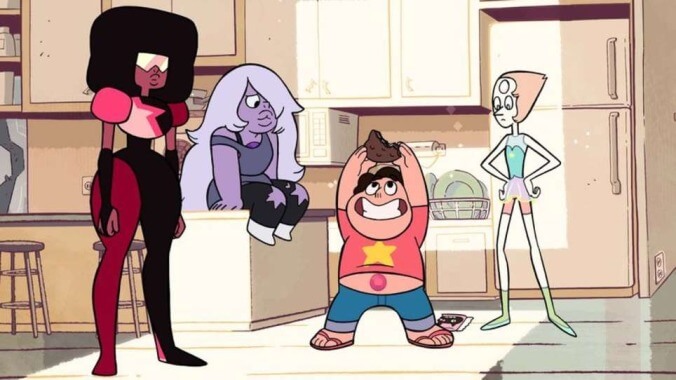
Steven Universe was many things at once: a coming-of-age story for its titular protagonist, a science-fiction epic about a race of would-be conquering alien Gems, an allegory about gender identity, and a successful TV musical. The series broke ground for the representation of queerness on children’s TV, and tackled issues ranging from non-nuclear families to abusive relationships. Amidst the conversation about the capital-M Meaning of Steven Universe, however, it’s important to remember that more than anything, the show was warm, lovely, and fun. Steven Universe rarely, if ever, sacrificed its sense of humor, or its compelling action sequences, or its grasp on its characters, in the service of making a point. And really, that’s all we could have asked for from this wonderful kids’ show. []
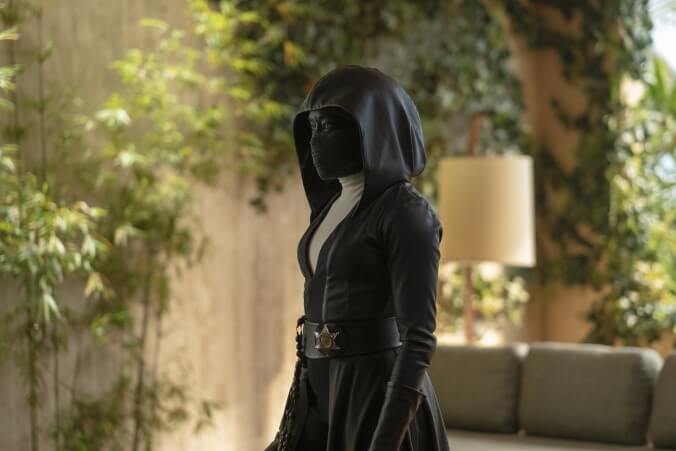
Watchmen always deserved to be a miniseries. No one expected it to be this miniseries, a continuation untethered from theatrical run times, cinematic tidiness, or fidelity to the source material, arriving at something searing, surreal, and truly in the spirit of Alan Moore’s costumed-vigilantes-as-fascists philosophy—whether Moore likes it or not. Showrunner Damon Lindelof works from the blueprint (emphasis on “blue”) he set for one of the decade’s best shows: Like The Leftovers, Watchmen is a gutting, occasionally gut-busting contemporary parable set in the wake of a global catastrophe. But the psychic wounds inflicted by a Freudian space squid have nothing on the earthbound racism Watchmen exposes by unmasking American history, in sequences like Nicole Kassell’s harrowing re-staging of the Black Wall Street Massacre and It’s a superhero show about so much more for a superhero-obsessed, so-much-more era, every episode an “Avengers assemble” roll call of onscreen excellence. []
 Keep scrolling for more great stories.
Keep scrolling for more great stories.
